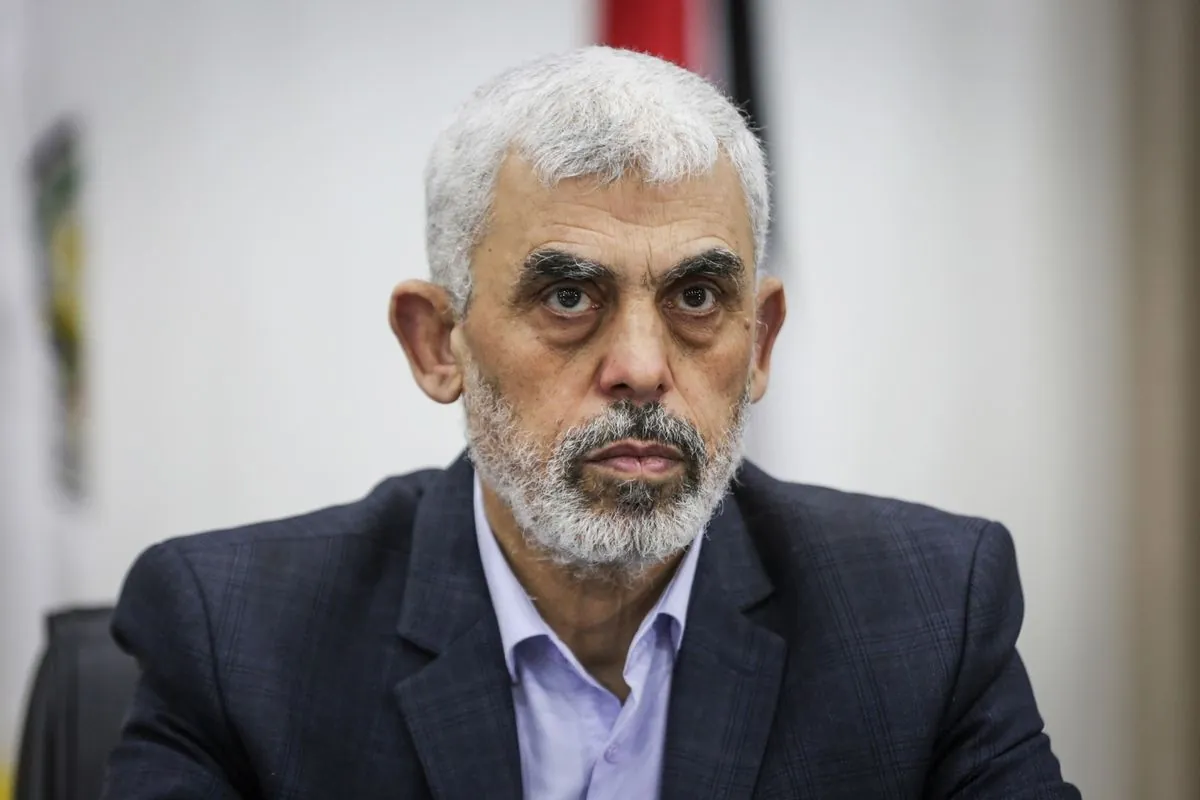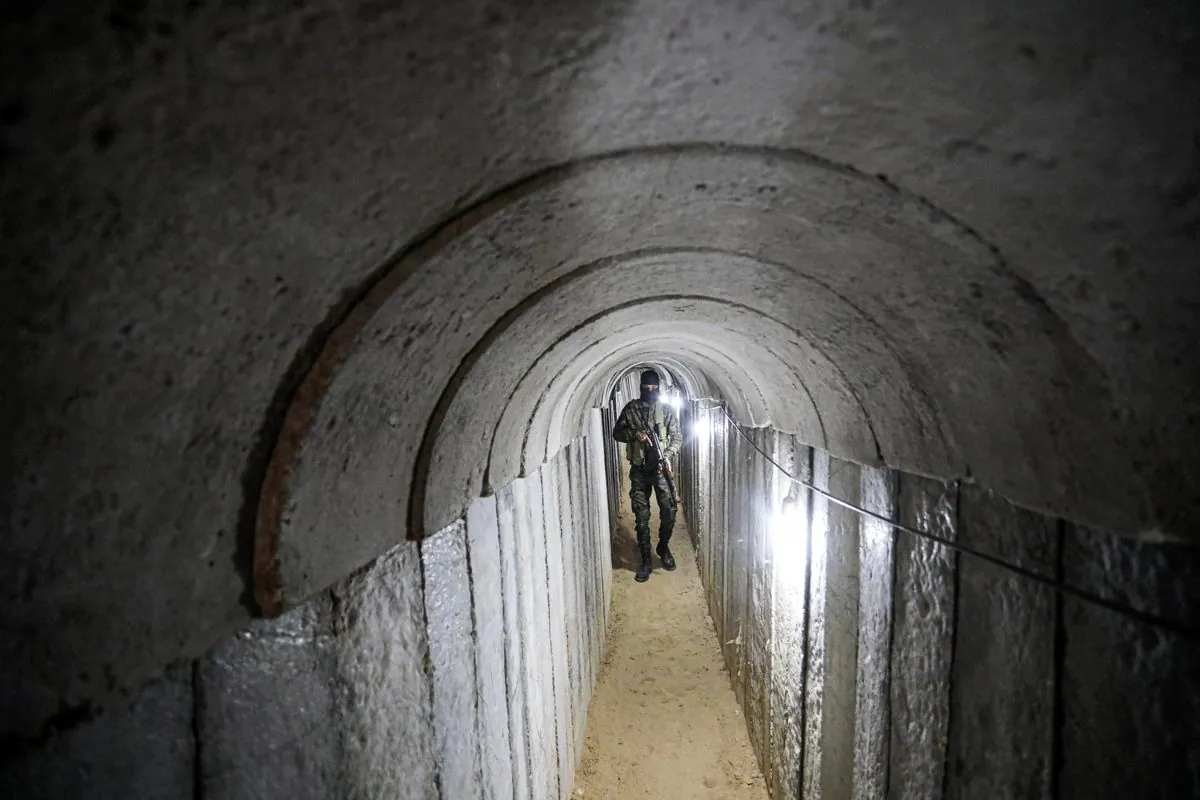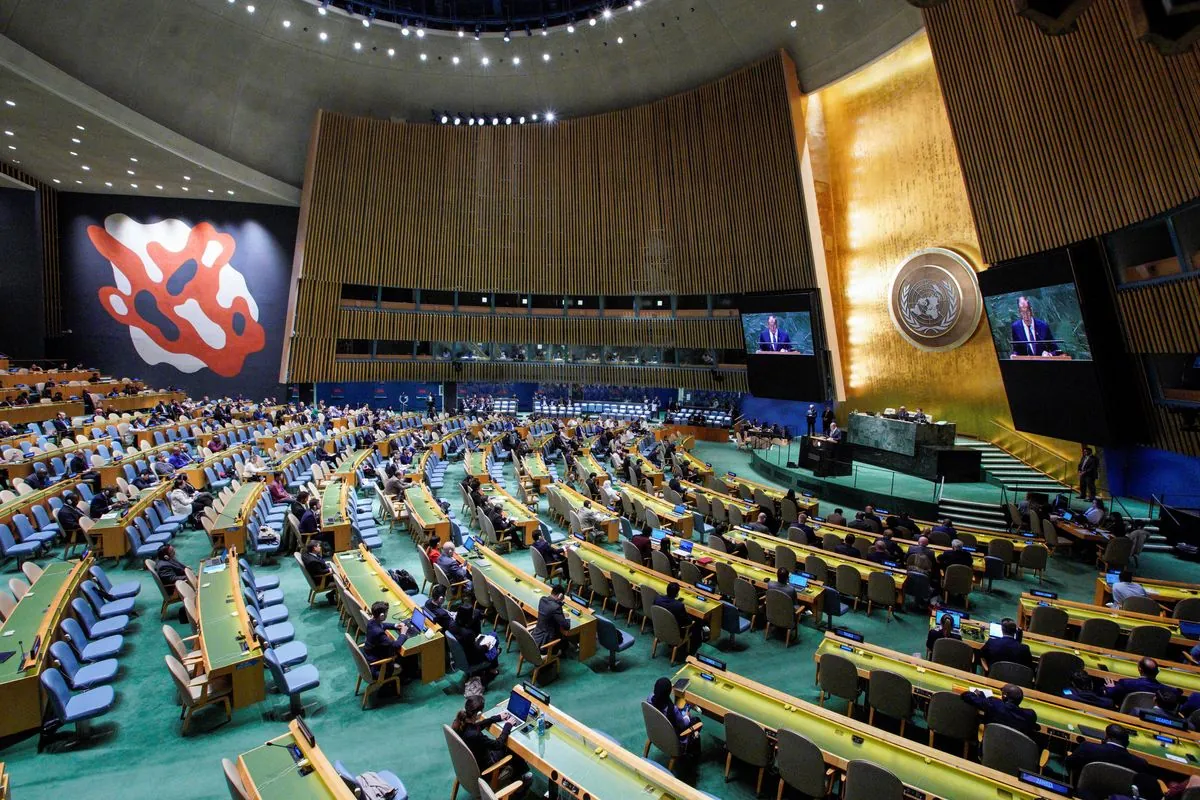Hamas Appoints Hardliner Yehiya Sinwar as New Political Chief
Hamas elevates Gaza leader Yehiya Sinwar to head its political bureau, replacing the assassinated Ismail Haniyeh. This shift emphasizes the growing influence of Hamas's Gaza-based faction and its military wing.

Hamas, the Palestinian militant group, has announced a significant leadership change. Yehiya Sinwar, 61, has been appointed as the new head of the organization's political bureau, replacing Ismail Haniyeh, who was killed in Tehran on April 17, 2024.
Sinwar, known for his hardline stance and close ties to Hamas's military wing, has been a prominent figure in the group since its inception in 1987. His elevation to the top political position underscores the growing influence of Hamas's Gaza-based faction within the organization.
The appointment comes in the wake of the October 7, 2023, attack on Israel, which Sinwar is believed to have masterminded. This event marked a significant escalation in the ongoing conflict between Hamas and Israel, resulting in approximately 1,200 Israeli casualties and 253 hostages taken.

Sinwar's background includes more than two decades in Israeli prisons, where he reportedly learned Hebrew and solidified his reputation among fellow militants. His experience in establishing Hamas's military wing, the Izz ad-Din al-Qassam Brigades, blurs the lines between the group's political and military operations.
The change in leadership raises questions about future negotiations and Hamas's diplomatic relations. Haniyeh, who was based in Qatar, was seen as a more moderate face of the movement and played a crucial role in cease-fire talks. It remains unclear how Sinwar, currently in hiding and a top target for Israeli forces, will manage these diplomatic responsibilities.
"There is only one place for Yehiya Sinwar, and it is beside Mohammed Deif and the rest of the Oct. 7 terrorists."
This statement reflects the ongoing tension between Hamas and Israel, with the latter vowing to eradicate the group as a military and governing force in Gaza.
The appointment of Sinwar has implications for Hamas's relationships with other Palestinian factions and regional powers. While some view him as a divisive figure, others, including prominent Fatah member Jibril Rajoub, have expressed support for the decision.
Hamas's choice of Sinwar may also indicate a closer alignment with Iran, the group's primary financial backer. This shift could potentially influence regional dynamics and future conflict resolution efforts.
As the situation continues to evolve, the international community watches closely to see how this leadership change will impact the complex landscape of Middle Eastern politics and the ongoing Israeli-Palestinian conflict.


































